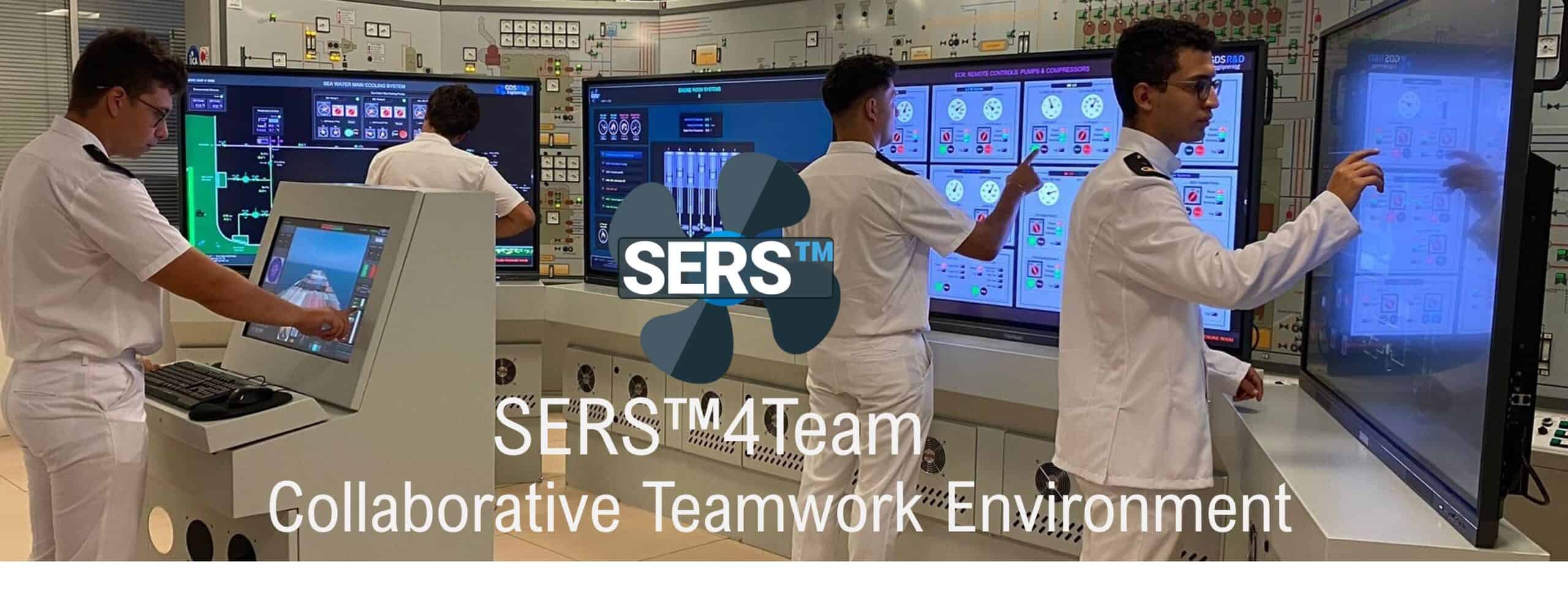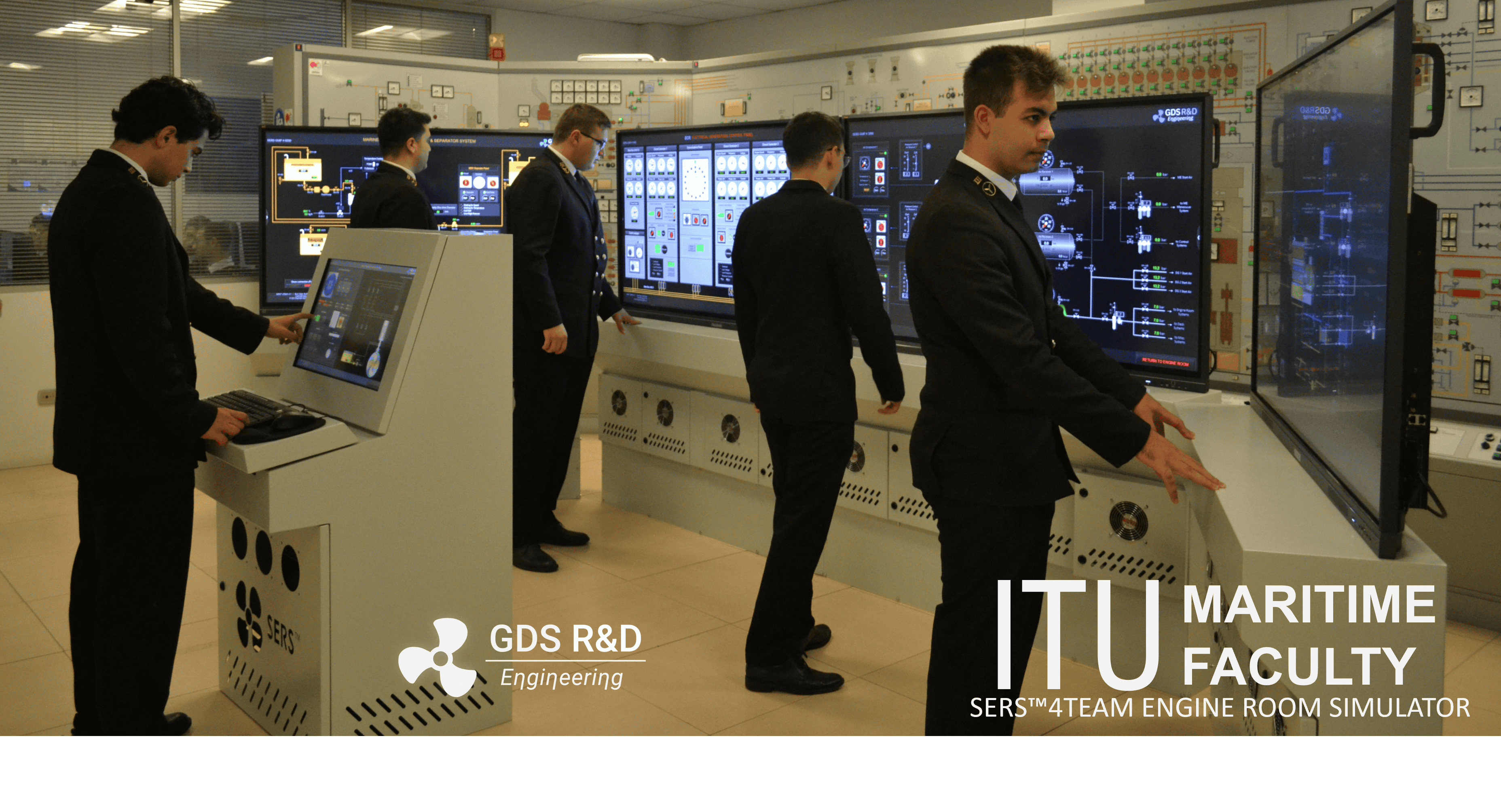
Request Your Quote Today!
Media error: Format(s) not supported or source(s) not found
Download File: https://www.globaldynamicsystems.com/wp-content/uploads/2024/12/sers-video-4.mp4SERS™4Team Makes Your Engine Room Resource Management Training Effectively Completed
The SERS™4Team is developed to revolutionize engine room resource management (ERM) training by addressing the limitations of traditional methodologies. The distributed system with multiple high-resolution touch panels, SERS™4Team, incorporates state-of-the-art training technologies and methods to simulate realistic operational environments and foster teamwork.
Key Features
Distributed Architecture for Role-Based Training
- A network of 65-inch high-resolution touch panels serves as dedicated touch panels for specific engine room roles: Chief Engineer, Second Engineer, Third Engineer, Fourth Engineer, and Electro-Technical Officer (ETO).
- This distributed setup ensures effective collaboration by allowing trainees to experience the unique responsibilities of each role.
Touchscreen Panels Interface
- Each workstation integrates an interactive touchscreen interface, mirroring the controls and instrumentation of real engine room systems.
- The user-friendly interface promotes hands-on learning and familiarity with advanced maritime technology.
Realistic Simulation Scenarios
- Pre-designed scenarios mimic real-world challenges, ranging from routine maintenance tasks to emergencies such as engine malfunctions or fires.
- These scenarios encourage critical thinking, problem-solving, and decision-making under pressure.
Performance Monitoring and Feedback
- Real-time performance metrics (e.g., response times, communication efficiency, decision accuracy) are tracked.
- Integrated debriefing tools allow for playback and detailed analysis of scenarios, facilitating targeted feedback and competency-based learning pathways.
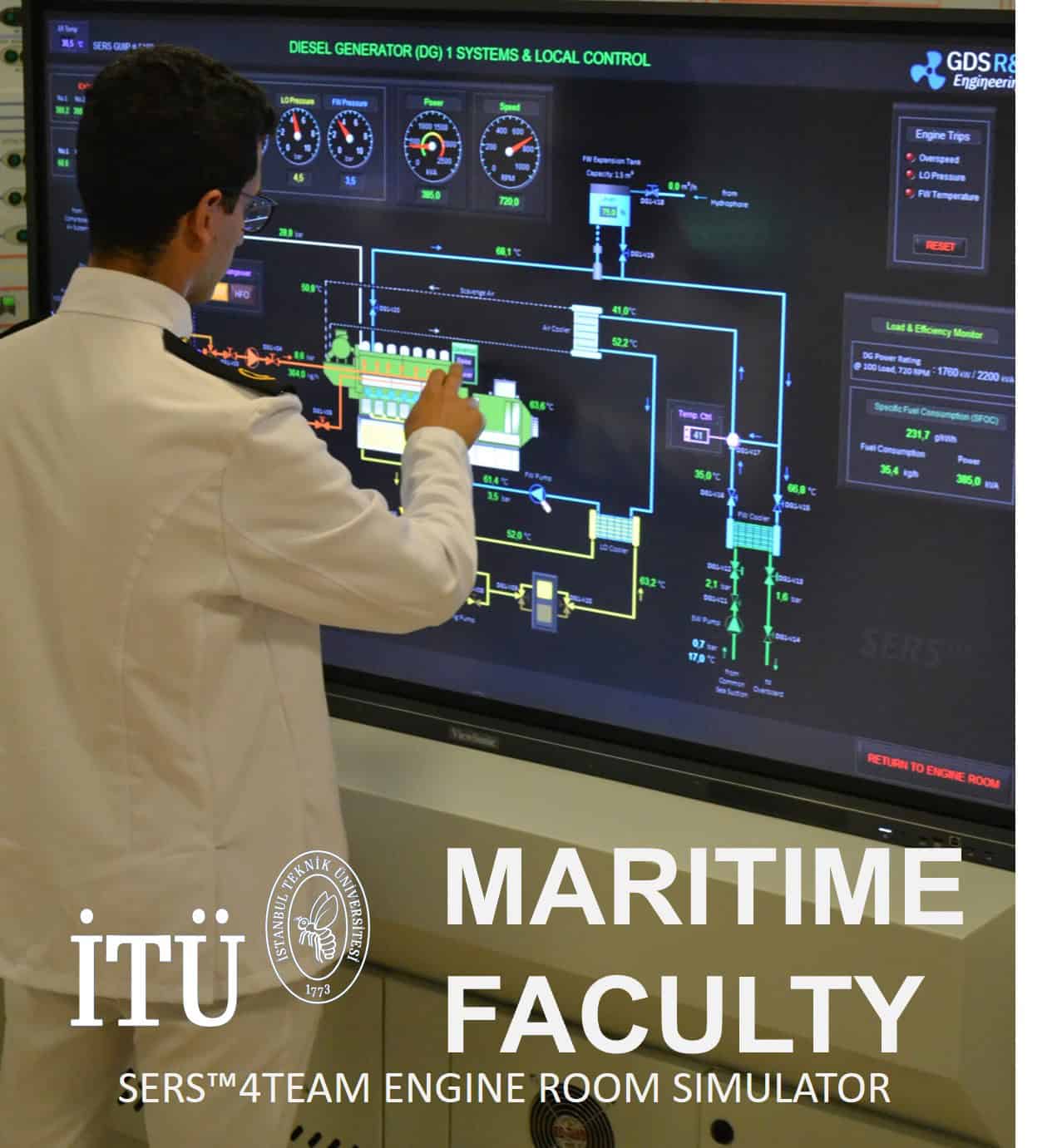
Modular ER Panels for Distributed Type Simulator Training
The GDS Ship Engine Room Simulator Team System (SERS™4Team) is a cutting-edge maritime simulation platform designed to enhance collaborative teamwork in the marine industry. Specifically developed to meet the IMO STCW 2010 Standards for Training and Certification of Watchkeeping, including Model Course 2.07 (2017 Ed.), SERS™4Team provides comprehensive marine engineering training through an immersive full mission engine room simulator (ERS) environment.
SERS™4Team focuses on IMO Engine Room Resource Management principles, enabling trainees to develop critical skills in communication, decision-making, and task allocation within a realistic engine room setting. The system covers all aspects of engine room operations, from ship electrical systems to main propulsion, and offers training at both operational and management levels.
SERS™4Team facilitates in-depth assessment and evaluation of trainee performance, allowing instructors to identify strengths and weaknesses. Advanced root-cause analysis and troubleshooting tools enable trainees to understand and learn from their mistakes, improving their technical skills and problem-solving abilities.
By incorporating scenarios focused on energy efficiency, SERS™4Team promotes best practices for optimized fuel consumption and reduced environmental impact. This ensures that trainees are not only technically proficient but also environmentally responsible.
Training Stages and Configurations
The SERS™4Team offers versatile configurations tailored to different training stages:
| Stage | Method | Objectives | Assessment |
| Classroom | Briefings and debriefings with interactive system exploration. | Group familiarization and theoretical knowledge reinforcement. | No assessment. |
| Laboratory | Individual practice with simulation software on personal workstations. | Development of individual role competencies and responsibility awareness. | Individual assessments. |
| Full Mission | Collaborative teamwork in a distributed hardware environment with GUIs. | Simulation of realistic scenarios requiring team coordination and problem-solving. | Team-based assessments. |
Call Us to Identify Your Configuration ad Number of Panels and Other Hardware based on Your Training Objectives
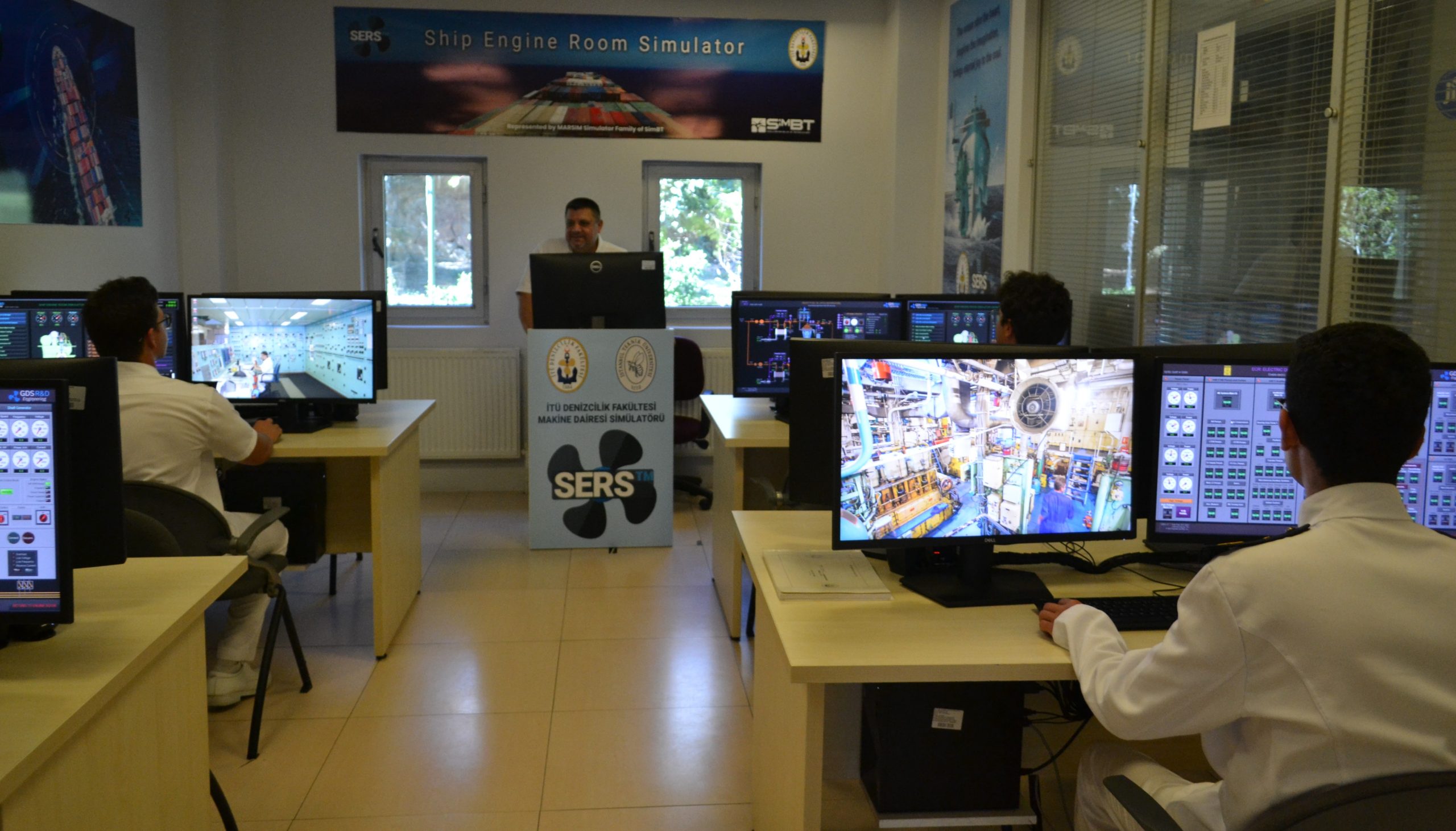
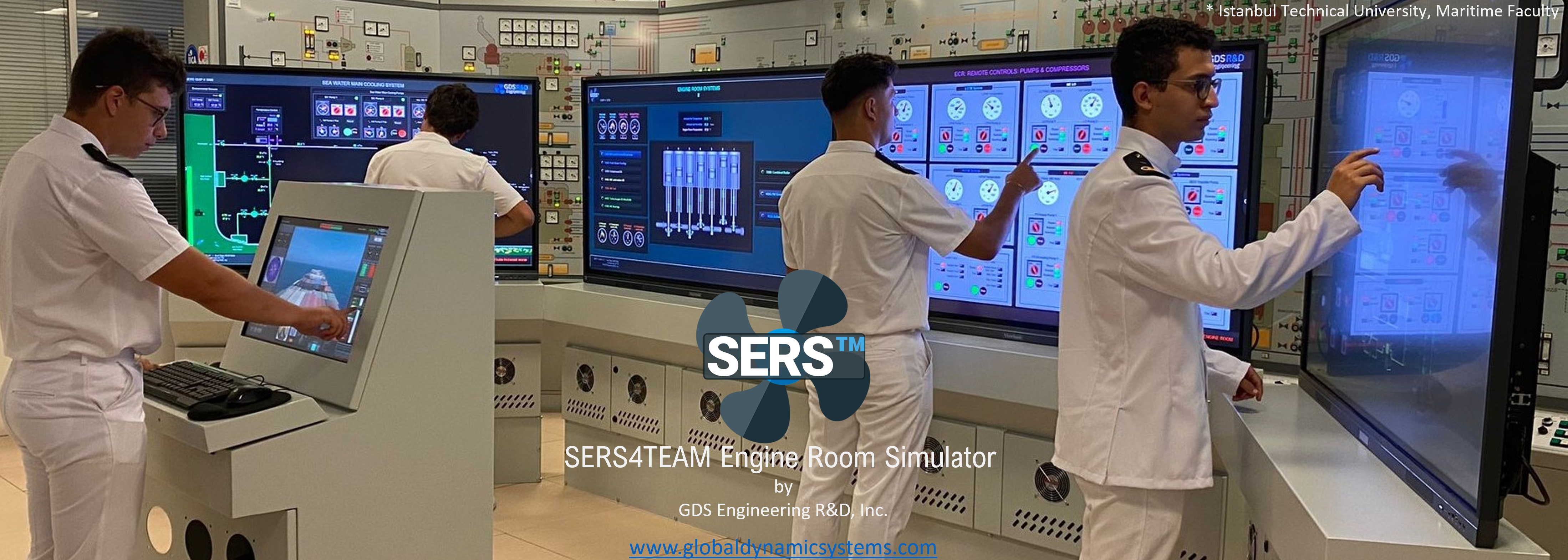
Teamwork and Competency Development
Enhancing Team Dynamics
- Situational Awareness: Trainees practice sharing real-time data and operational insights to develop proactive strategies.
- Optimized Communication: Exercises include clear, efficient, and assertive communication protocols.
- Decision-Making Under Pressure: Simulated emergencies prepare trainees for rapid and effective decision-making in high-stress scenarios.
- Resource Management: Realistic task allocation and resource prioritization challenges foster operational efficiency.
- Team Cohesion: Collaborative problem-solving builds trust, morale, and a strong safety culture.
Role Based Assignments
The system aligns with the roles defined in IMO Model Course 2.07 and 7.04. Task distribution includes:
- Chief Engineer: Oversees time and task planning, system monitoring, assignments, and alarm monitoring.
- Second Engineer: Focuses on main engine systems, steering gear, ballast systems, and emergency operations.
- Third Engineer: Manages boilers, compressed air, hydrophores, freshwater tanks, and incinerators.
- Fourth Engineer: Operates seawater systems, freshwater systems, generators, separators, tanks, and coolers.
- Electro-Technical Officer (ETO): Operates diesel generators, shaft generators, bus bars, and electric consumers.
Innovative Simulator Architecture
Hardware Components
- Touch Panels: Four 65-inch screens simulate dedicated workstations for engine room roles.
- Central CPU and Network: Ensures real-time data transmission and scenario synchronization.
- Optional Add-Ons: Joysticks, gauges, and environmental effects (e.g., alarms, sounds) for enhanced realism.
Software
- SERS™4Team: Provides detailed system simulations and scenario management.
- Integrated Assessment Tools: Tracks performance metrics and supports debriefing sessions.
